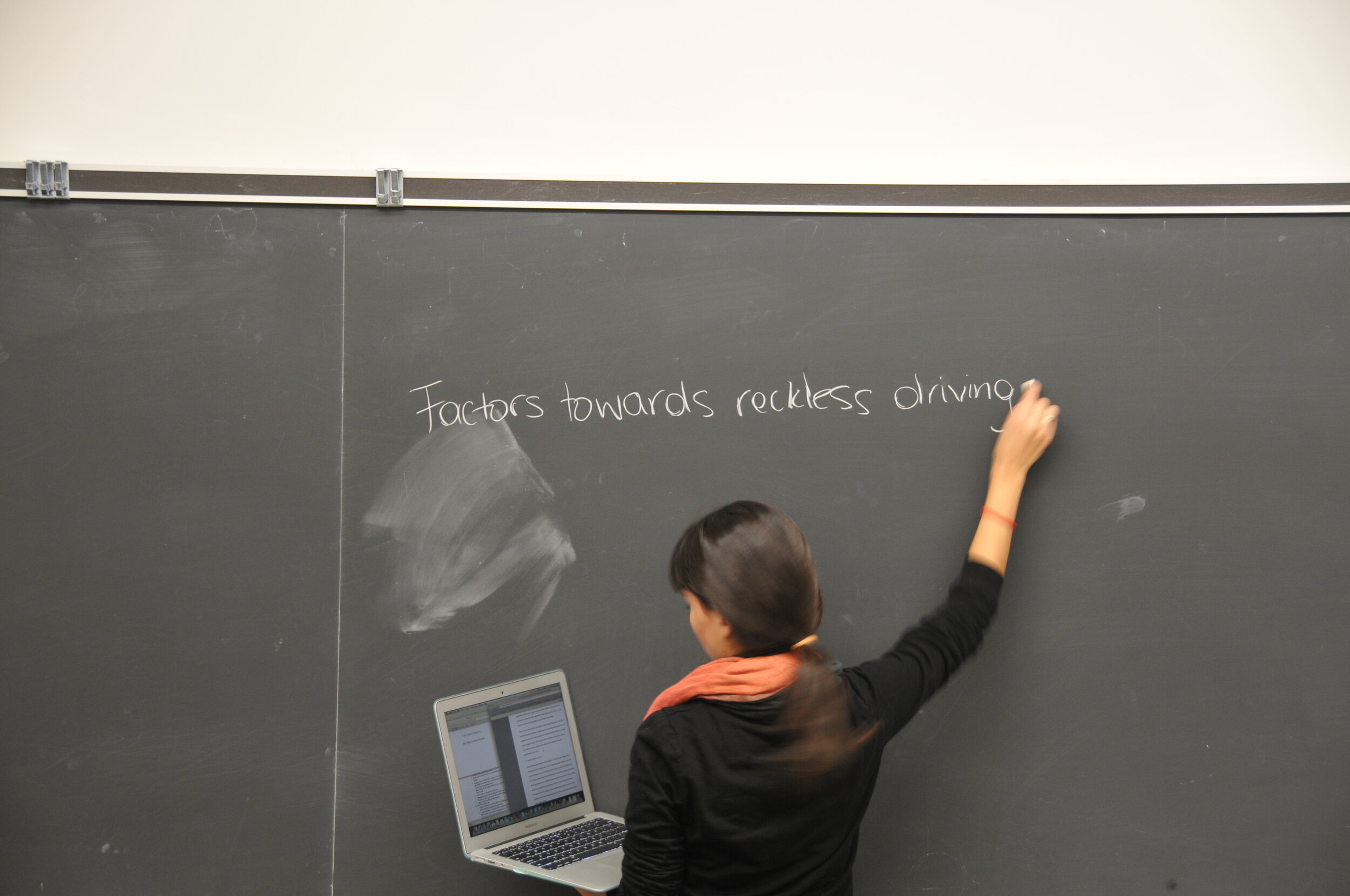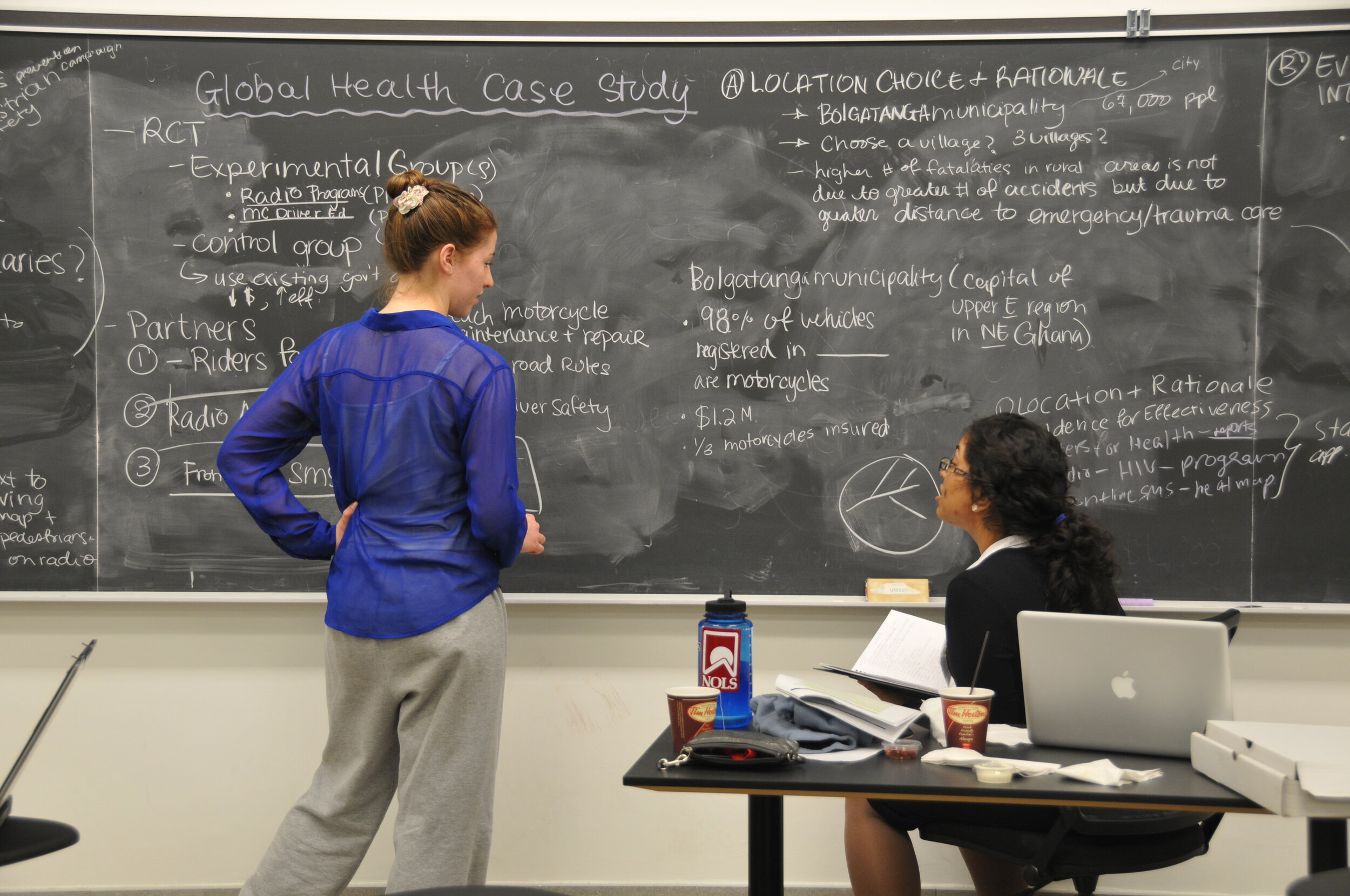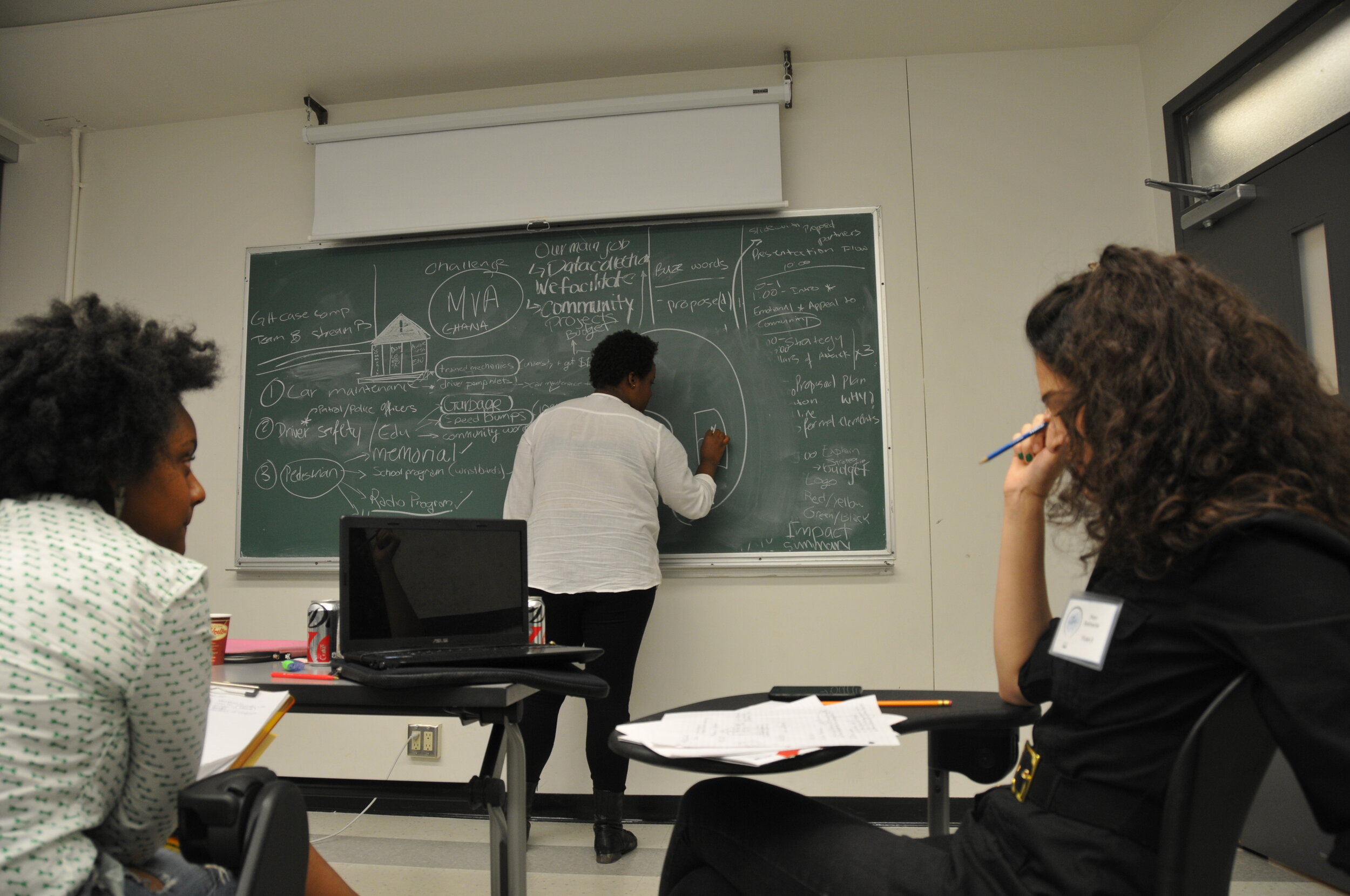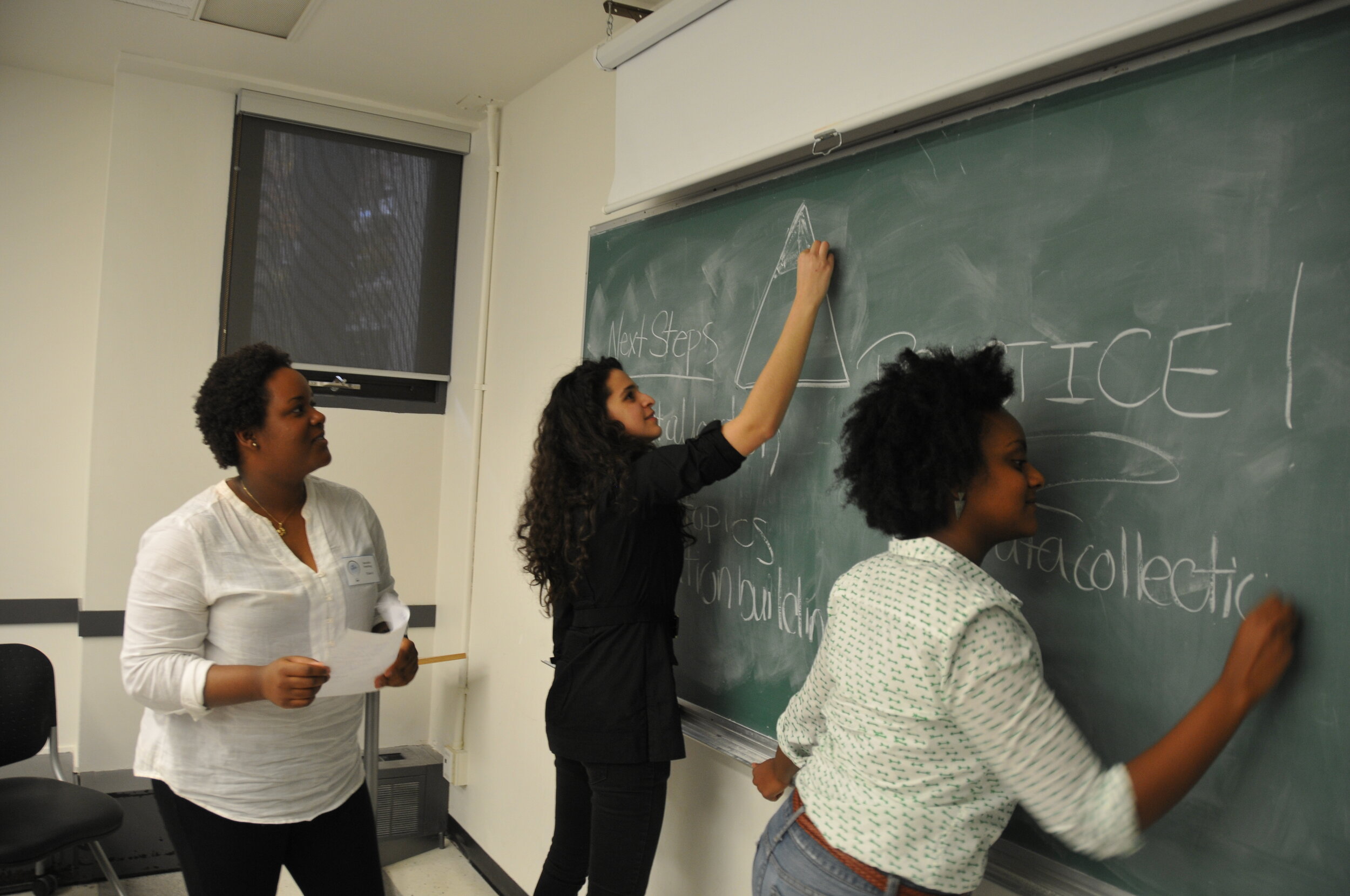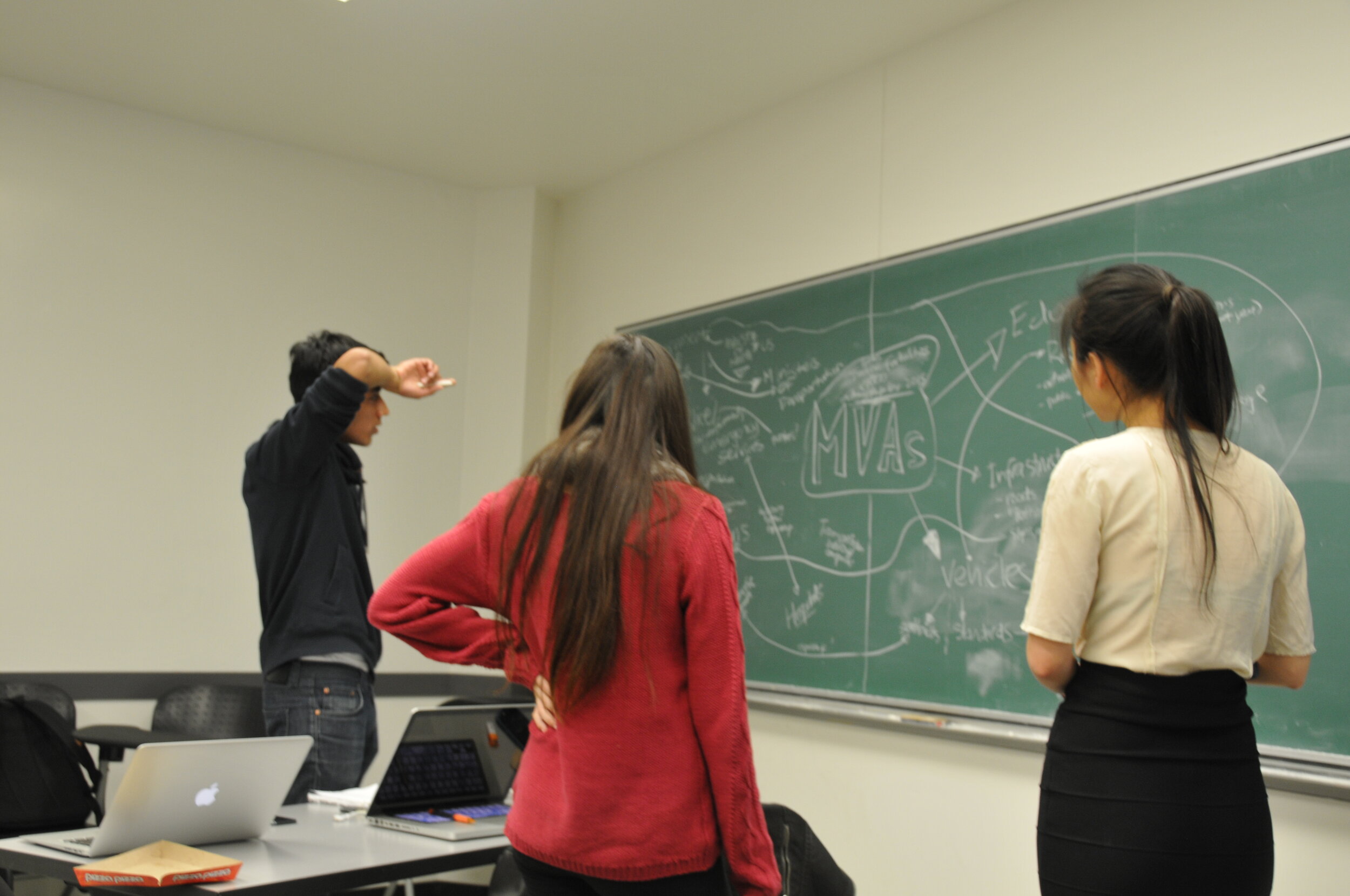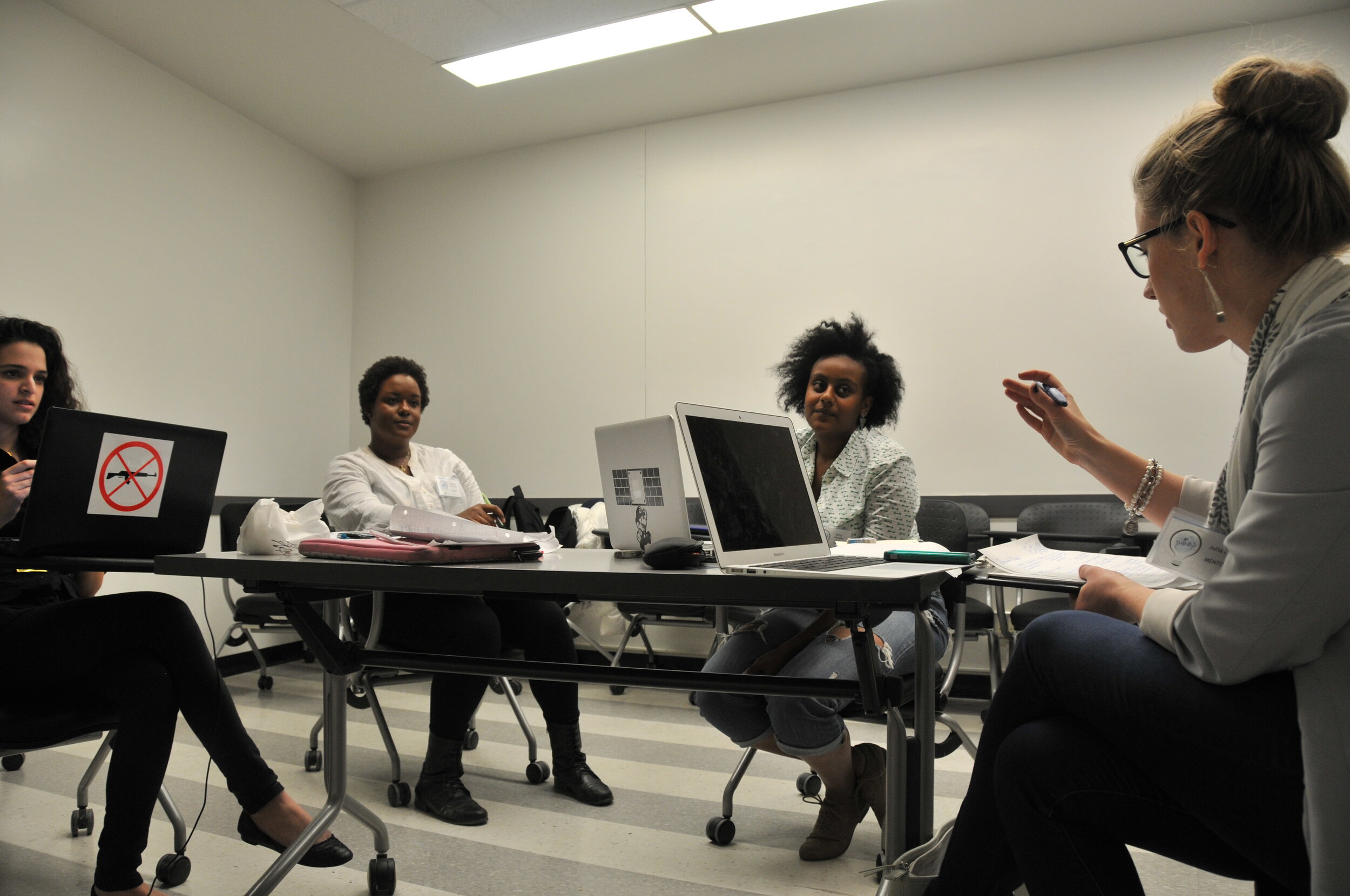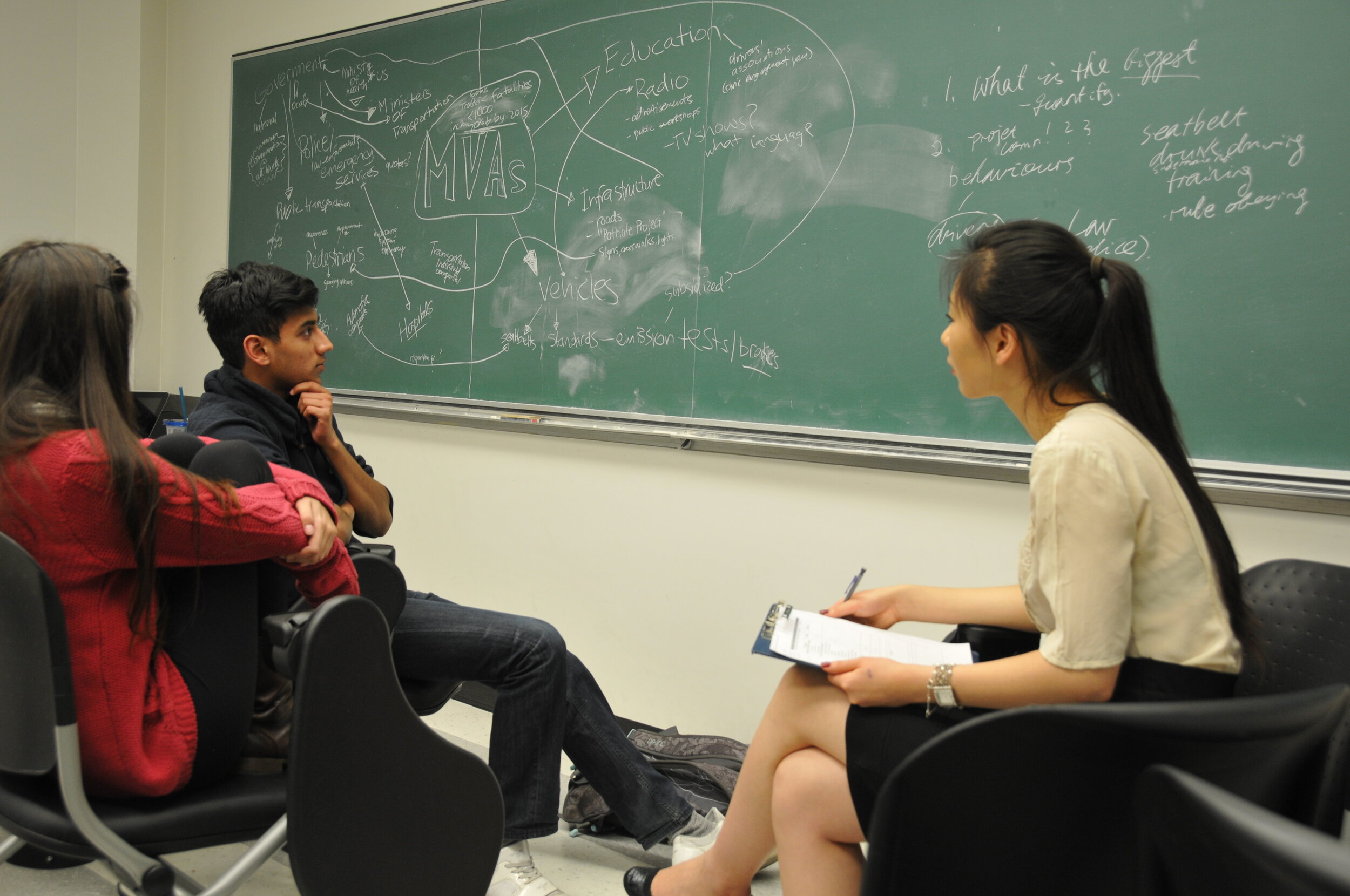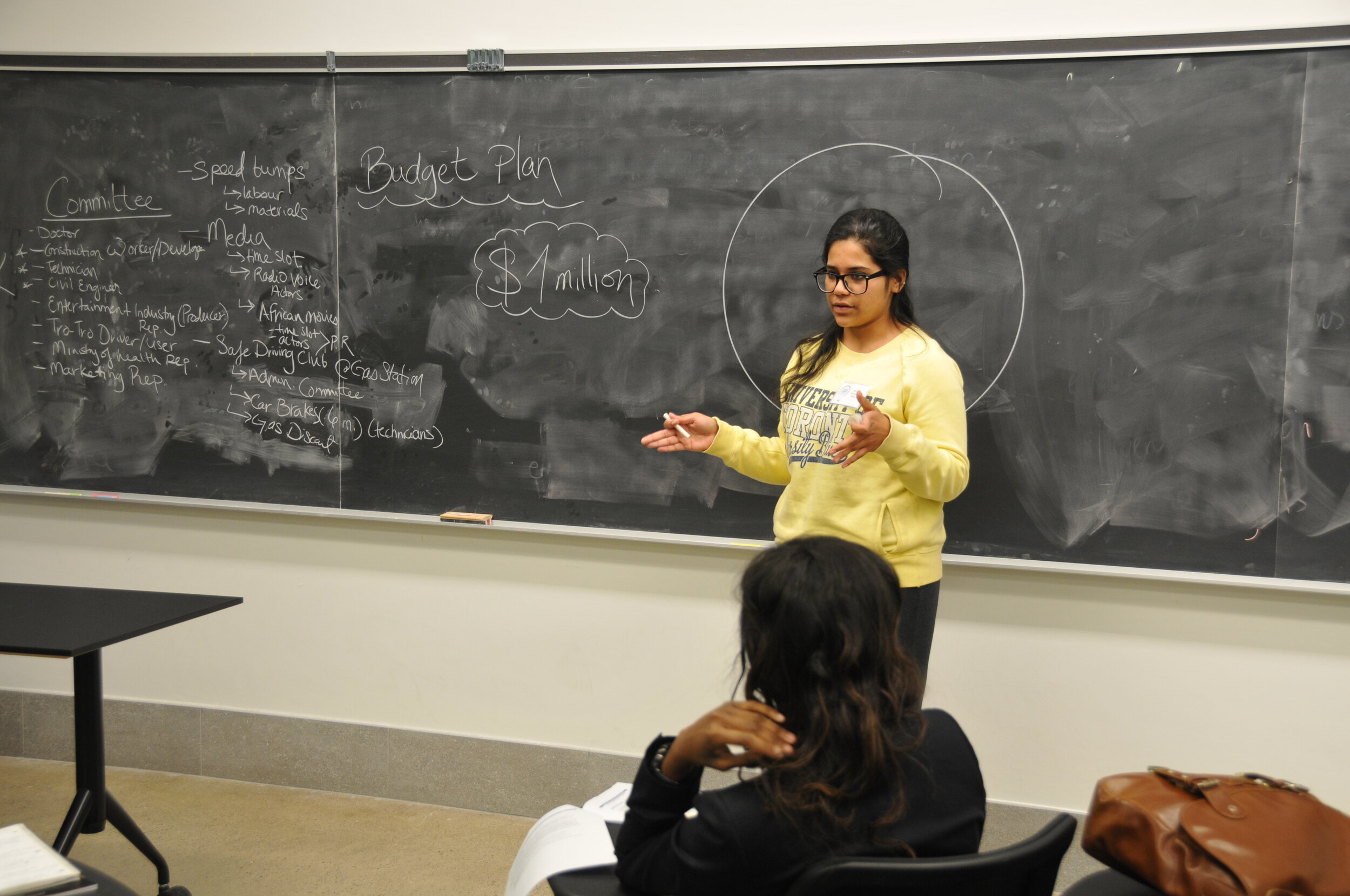Toronto Thinks: The Mu Yensa Project
In November 2013, undergraduate students gathered to compete in Toronto Thinks: Global Health Innovations and Solutions, Canada’s first undergraduate global health case competition. Hosted by Juxtaposition Global Health Magazine, Toronto Thinks is a global health laboratory that aims to stimulate learning and intellectual discussions on real-life global health challenges. This past year the inaugural competition highlighted the issues of motor vehicle accidents in Ghana. Eight teams participated in the competition to present innovative, realistic, and evidence-based solutions to a panel of experts in Global Health. The following article is the solution presented by the winning team of Toronto Thinks 2013.
The Mu Yensa Project
Mu Yensa Project Logo
In 2013, the World Health organization published the following staggering statistics relating to road traffic accidents. In 2012 alone, 1.27 million reported deaths occurred worldwide on highways, motorways, major roads, and minor roads. Cyclists and pedestrians accounted for 50% of these victims.
With Africa’s growing population and steady urbanization, the rate at which road traffic accidents occur is rising. Presented with the challenge to create a program to better understand and mitigate this problem, we focused our efforts on Ghana, a continental region in Africa. Thus, our program had to minimize the occurrence and the effects of motor vehicle accidents (MVAs) in Ghana.
The Mu Yensa Project (Akan: “In Our Hands”) is a proposed plan to tackle the MVA issue beginning in Ghana. The project is fashioned on three pillars of operation: Community Involvement, Data Collection and Awareness. With a vision of using community engagement to shape the project’s foundation, we hope that local businesses, organizations and institutions can come together to ensure self-sustainability.
Madina: Pilot Location
Madina is a township of the Greater Accra region just outside Ghana’s capital city. As a microcosm of Ghana, it reveals her rural, industrial and urban features creating an ideal environment for the Mu Yensa Project Pilot Program. It is ideal given its proximity to our stakeholders, major and minor roads, the capital city and the George Walker Bush Motorway, which is referred to in colloquial terms as Accra’s “Death Trap Highway”. Today, more than half of all road accidents occurring in Ghana take place on the George Walker Bush Motorway.
The Initiative
Mu Yensa will follow a 4-phase cyclical approach – Red, yellow, green and black. These colours carry great significance Red represents the blood of those who die annually due to preventable MVAs; Yellow represents the hope of the country; Green symbolizes the capacity for growth and Lastly, black signifies the black star of Ghana’s flag, itself an empowering symbol for the Ghanaian people.
Red phase: Stakeholder engagement. In the first 4 months we will focus primarily on networking with stakeholders and collecting and processing data.
Yellow phase: Introductory implementation. A 6-month action phase where we will distribute highly specialized kits to develop awareness for the initiative.
Green phase: Go. An 11-Month Action Plan in which full implementation of strategies occurs. Nearing the end of this phase, we begin to withdraw our resources and limit our presence to allow full community engagement.
Black phase: Monitoring and Evaluation. We will complete each cycle with a 4-Month period of review where new data is collected, analyzed and used to update existing practices.
Major Strategies
Mechanic certification program:
Poor vehicle condition is a leading cause of accidents in Ghana. The vast majority of cars are constructed using workable parts from old and damaged vehicles. Additionally, refurbished cars are assembled by untrained mechanics, further diminishing the vehicles’ safety.
We plan on working in collaboration with the department of Mechanical Engineering at the University of Ghana to implement a training program. Through this, local mechanics will be taught highly specialized skills, and will be required to obtain certification. Engineering students running the course will ideally receive academic credit for their efforts, mechanics will attend free of charge and motorists who have their vehicle serviced regularly by certified mechanics will be rewarded with points through their existing driver’s licensing system.
Recycled refuse road dividers:
Head on collisions are of critical concern. These kinds of accidents are most common on roads with little division of traffic and are often caused by unlawful overtaking. We have designed this operation to not only tackle road traffic accidents, but the growing amounts of unfiltered refuse on land and in Ghanaian landfills.
Located in Accra, the Oblogo landfill is the largest open dumping site in Ghana. Adjacent to the Densu River, which supplies 50% of Accra’s drinking water, it collects 1200 tonnes of waste from the city daily. No buffer zone exists between the dumping site and the residential areas just 4km away from Oblogo.
Modelled from compressed refuse cubes designed by Nargis Latif of Pakistan, we will collect, dry and compress waste material into slender barriers that will be strategically placed along roads and motorways to streamline traffic. These barriers will divide pedestrians, cyclists and motorists and prevent drivers from overtaking on crowded streets. This initiative will be in collaboration with local company Equipment Depot Ghana Ltd. The proposed barrier is resistant to rainfall and wind, malleable and most importantly, reflective.
Minor Strategies
The Mu Yensa project also involves several secondary strategies to build awareness and unity within the community.
Firstly, a memorial statue will be constructed using the metal of vehicles destroyed in road accidents. This memorial will serve as a constant reminder of the Mu Yensa initiative, as well as a site for those affected to honour their deceased loved ones.
Secondly, a reallocation of resources within law enforcement will allow trained officers into high occupancy areas to direct traffic where there are streets devoid of effective signage.
Finally, modeled from successful efforts in Rwanda, soap operas, specifically radio soap operas will be used to create a discussion of the issues surrounding road traffic accidents. Urunana – a Rwandan Radio Soap- reached an estimated 10 million people each week, spreading awareness of Health Poverty.
In order to create a presence for the project in the city, educational workshops will be held in the popular marketplaces and schools, along with the distribution of branded reflective accessories, which also function to increase pedestrian visibility.
Reducing the number of deaths by road traffic accidents will require the combined efforts of authority figures and general citizens alike. Though our proposed efforts in Madina are only the tip of iceberg, it is our hope that Mu Yensa will become a grassroots movement, sweeping the globe to create safer roads for all.
The winners and the co-directors of Toronto Thinks 2013
“Nour Backache, Betel Yibrehu, and I, would like to thank Toronto Thinks and Juxtaposition Global Health Magazine for this challenge. It has been a phenomenal opportunity for intellectual growth and it is our hope that you are able to provide this experience to many in the years to come.”

